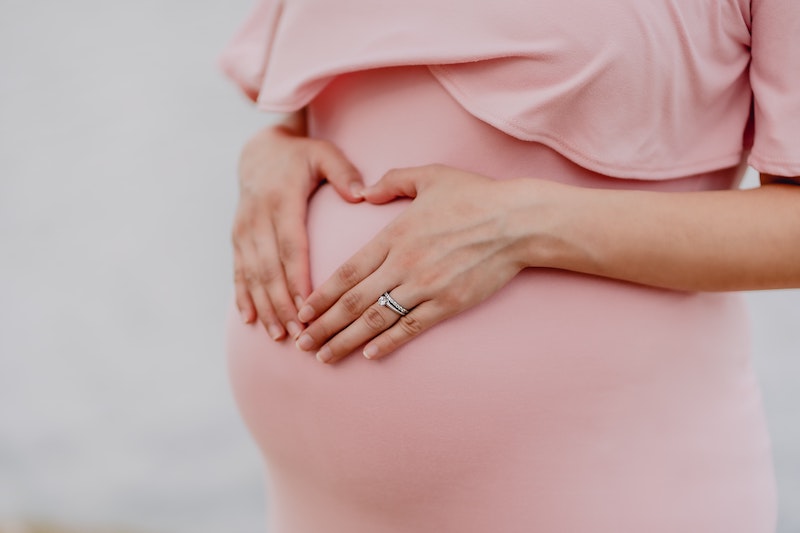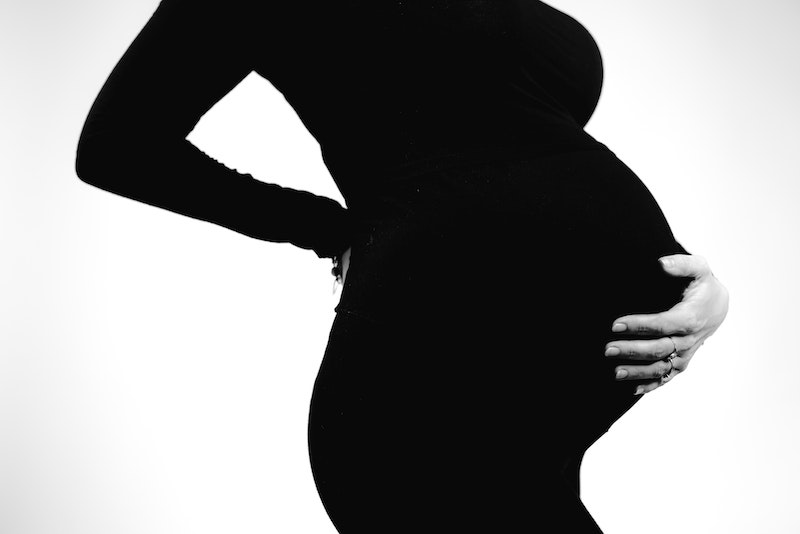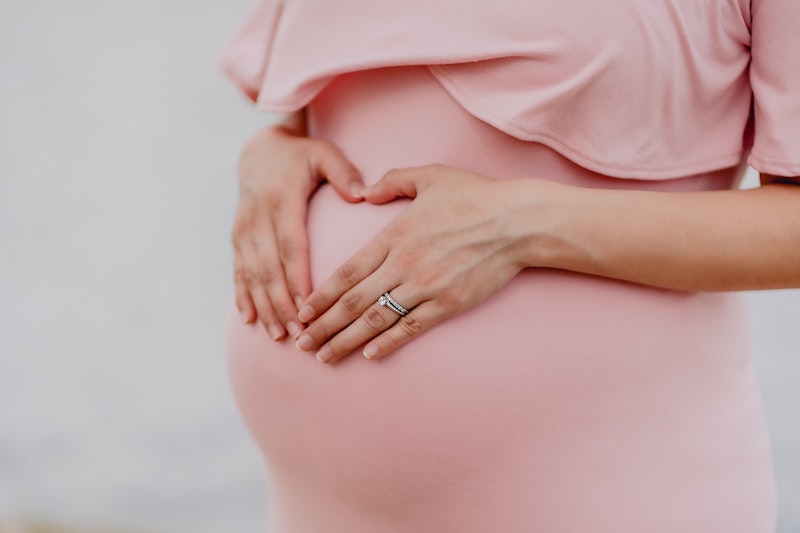Post Pregnancy Weight Loss: Tips, Diet Plan & Foods to Eat

Most new mothers struggle to shed off the pounds they gained during pregnancy; however, the struggle is even farther greater when the new mother attempts to lose pregnancy weight after having her baby, particularly if she is struggling to follow the suggestions of her prenatal trainer.
The most significant deviation from your body composition prior to pregnancy is often weight gain. This article will assist you gain weight after pregnancy by shedding light on the important factors, which play a role in this form of weight gain and how to lose weight fast. Detailed information on post-pregnancy weight loss, the average time it will take you to achieve the flat belly you strive for post pregnancy, how to accelerate post pregnancy weight loss and options to follow for fast weight loss as well as ways to avoid fast weight loss will follow.

New mothers in this age frequently feel weighed down with shame about their increase in perceived weight. However, they are not alone in this—post-pregnancy weight gain is very natural and nothing they do needs to be ashamed of. The weight will go away more naturally than they gained it. They simply need to be active, practice good dietary habits, and understand the rhythm in which their body works. Losing weight requires a positive mindset and trust in their efforts.
If you are interested in losing post-pregnancy weight, you need to follow a recommended post pregnancy diet, eat the food types recommended, avoid dangerous food types for you and your unborn child, and maintain healthy levels of activity. You must also have sufficient sleep, eat meals at appropriate times, engage in healthy activities, and drink the recommended cold water amount.
Post pregnancy weight gain
The post pregnancy weight that we gain comes from a variety of factors. Our appetite increases when we are pregnant to be under the regulation of hormones entering our bloodstream; Growth Hormone and human chorionic gonadotropin (HCG). The former regulates our digestion, metabolism, the energy and nutrition distribution, as well as our ability to retrieve energy in order to focus or perform the very important task of breastfeeding. The latter hormone helps regulate our pregnancy. That hunger makes us add to our bodily appearance by gaining weight, since the energy and food derived from the food we eat is directed to labour and energy for the baby. As a result, we gain weight that can stay on ranging up to six months after birth, continuing even while breastfeeding.
Most pregnant women who are now the primary caregivers for their children will experience stress and depression. Cortisol rises in their blood and increases their appetite and forces fat storage in the lower abdominal area. This puts many mothers in a state of “eating their feelings” and encourages further weight gain.

Tips to lose post pregnancy weight
Discussed below are a handful of tips on how to lose weight after pregnancy naturally
Examine your diet to understand your cravings
Yes, pregnancy cravings are real. During the first half of my pregnancy, I longed for juicy cheeseburgers. As a nearly full-time vegetarian until pregnancy, this meat-craving behavior was unusual. While cravings can’t always be explained, we can look to the nutrients our bodies might be needing.For me, maybe I needed more protein, fat, and iron — three nutrients found in red meat. Although cheeseburgers are easy to eat for every lunch and dinner, I knew the long-term effects wouldn’t be the best for me and my baby. I made an effort to prepare high-protein meals, including recipes with chicken, fish, and beans. Most of the greasy restaurant cheeseburgers I wanted were replaced with leaner, hearty alternatives. These wholesome meals helped curb my cravings by keeping me full and satisfied.To ensure you and your baby get what you need, your diet should include several minerals and nutrients — namely calcium, iron, and folate.
Drink plenty of water
Keeping yourself hydrated is good for your body for several reasons. First, it increases your metabolism and helps you keep in shape, and It also helps you control your appetite by making you feel full. Also, if you notice whether or not your urine is clear, it means that you are not being hydrated enough.
Exercise
You can follow a post pregnancy weight loss diet plan for post pregnancy weight loss. However, in most cases, following a post pregnancy weight loss diet won’t be enough to deliver the weight loss results you want. If you want to enjoy rapid weight loss after pregnancy, you have to include an exercise routine as part of your post pregnancy weight loss plan. Think of incorporating a weight training or aerobic workout to burn those calories and strengthen your muscles and bones. New mothers should try and keep time aside to exercise in their daily routines- not just for post pregnancy weight loss, it has numerous other benefits to offer. It can help them relieve the stress they are experiencing with a new baby in the house, perk up their mood and improve their sleep quality.
Don’t compromise on sleep
Now, this might seem like a tricky prospect with a toddler hankering for your attention 24/7, but lack of sleep can really affect your post pregnancy weight loss plans. When you are sleep-deprived, you tend to make unhealthy lifestyle choices like binge eating and drinking, which do nothing to help you lose weight. If you are exhausted throughout the day because you didn’t get ample sleep during the night, your body will release the cortisol hormone, which will aggravate your hunger pangs.
Have realistic expectations
Yes, celebrity post pregnancy weight loss stories may have you believe that you can go back to your pre-pregnancy body in a couple of months, but these stories are often not 100% true.
Even if they are – don’t forget they have an entire team working for them, charting out their post pregnancy weight loss journey. Research has found that the average time to lose baby weight can exceed a year. It could take a year or two for you to return to your pre-pregnancy body, if at all.
Keep healthy snacks close at hand
Breastfeeding mothers are subject to sudden hunger and spikes in their appetite. If not handled well, these hunger spikes could lead to weight gain. Instead, if you stock up on fruits, sprouts, vegetables, nuts and yoghurt to feed on, when hungry – you could help bring down the average time to lose the baby weight, in your case.

Post-pregnancy diet plan
Your post pregnancy weight loss diet should never be a crash diet. You should be looking to lose your pregnancy weight gradually and effectively with a reliable post pregnancy weight loss diet plan.
Women need between 1500-2200 calories daily to maintain regular bodily function. If you are breastfeeding, you should consume a minimum of 1800 calories, for the proper nourishment of both you and your body.
Aim to lose approximately 1.5 pounds on a weekly basis; you don’t want extremely rapid weight loss after pregnancy. If you lose weight too rapidly after your pregnancy, your body can release toxins into your blood contaminating your breast milk, which could prove severely harmful for the nursing child. If you’ve been consuming calories above the bare minimum, try to cut down 500 calories daily from your diet. You could do this by either eating smaller portions or increasing your activity levels.
Most post pregnancy weight loss diet plans advice new mothers to eat 5-6 small meals in a day interspersed with healthy snacks. They also ask women to try to avoid skipping meals, as this does more harm than good, and they end up eating in excess at other meals. Never miss breakfast, especially when you’re following a post pregnancy weight loss diet plan. It will keep you from feeling an energy lag later in the day and help you get your daily tasks done in a more focused manner.
Foods to eat
After you’ve made up your mind to get started on your post pregnancy weight loss diet plan, make sure that you are eating the right food products in alignment with your goal. The following food products will help you:
Fiber
Food rich in fiber improves your digestive health. Consuming soluble fiber keeps your hunger hormones in check and helps you eat less as a result.
Protein
Lean meat, eggs, fish, dairy and other sources of healthy protein can boost your metabolism and bring down your calorie intake by decreasing your appetite.
Complex Carbohydrates
Complex carbohydrates provide you with energy all around the day, as they take longer to break down.
Unsaturated and Polyunsaturated fats
Don’t stop consuming fat completely in a bid to lose weight post-pregnancy. Instead, eat food rich in unsaturated and polyunsaturated fats which keep your body healthy and improve cardiac function.
Foods to avoid
There are certain food items you must avoid if you want to succeed in your post pregnancy weight loss. These are:
Food with added sugar and/or refined carbohydrates
Food rich in sugar and refined carbs have low nutrient value and yet, are high in calories. Consuming food with high calorific value and low nutrient value can increase your weight, up your risk of developing heart health issues, cancer and diabetes. Try to steer clear of fizzy and sugary drinks and other such processed food variants such as packaged biscuits, cakes and the like. Opt for whole foods instead. If you must consume something sweet, go for desserts from an organic bakery as opposed to processed and packaged cookies.
Processed food products
As already discussed, processed food is unhealthy for you. Fast food and pre-packed food are examples of processed food, high in sugar, unhealthy fat, calories and salt. All of these are detrimental to your weight loss efforts. Try to consume nutrient-dense, fresh whole foods like fruits and vegetables instead.
Alcohol
Alcohol is calorie-dense, but it provides no nutrition. Alcohol consumption also leads to belly fat. Not only does it counteract your postpartum weight loss attempts, but it can also be unhealthy for your baby. Minimal amounts of alcohol can be passed over to your child via your breast milk. Alcohol consumption can also temporarily reduce your breast milk volume. Not to mention, the dependency you might develop which would interfere with your regular sleep quality.

Pregnancy health myths debunked
Myth 1: You can’t eat seafood
The mercury levels in fish make them a talking point for pregnancies. Most fish, according to the FDATrusted Source, are safe if they’re not consumed in abundance. Some of the safe choices include:
- canned tuna
- salmon
- catfish
- crab
The FDA has a full list hereTrusted Source.
There’s a lot of benefits to seafood, like healthy fats which aid in a baby’s development. Just cap your seafood intake to 340 grams a week, and avoid raw sushi to limit your risk of exposure to certain bacteria.
Myth 2: You should avoid exercise and exertion
If you’re healthy and have the go-ahead from your physician, it’s safe to continue doing most types of exercise, says the American College of Obstetricians and Gynecologists.
Some risks are associated with certain exercises — like horseback riding and contact sports — but that doesn’t mean you should avoid physical activity altogether. Regular exercise is extremely beneficial for both mom and baby, and can even alleviate pain points of pregnancy.
Myth 3: You’re not allowed to enjoy hot baths
Based on an old tale that people who are pregnant should avoid heat stress, many still believe they can’t soak in a hot bath.
New recommendations, however, state that hot baths and exercise are safe during pregnancy, as long as your body temperature doesn’t go above 102.2°F.
Myth 4: You can’t drink coffee
While it was previously believed that caffeine could cause a miscarriage, research showsTrusted Source that one to two cups per day is entirely safe. So no need to ditch your morning latte as your go-to energy boost!
Summary
Hopefully, our article helped you in understanding how to lose weight after pregnancy naturally. To conclude, we will try to comprehend the average time to lose the baby weight by a new mother. It is generally recommended that mothers don’t weigh themselves at least until two weeks after pregnancy. Even then, measuring waist size is probably a better idea as their weight won’t be reflective of their body fat only.
Mothers on a post-pregnancy weight loss diet plan may begin to show results of their weight loss efforts from the first month after conceiving itself. Women are medically advised to gain 25-30 pounds during their pregnancy to be able to amply nourish their baby. Some mothers can lose up to 20 pounds in the first month itself, meaning, they may already be back to their pre-baby body.
Six weeks from your date of conception, you will notice that your belly now looks flatter and smaller. If you have been successful in sticking to your postpartum weight loss endeavours, you will most likely have returned to your original weight before pregnancy, a couple of months post it.
Generally, nine months is the average time to lose baby weight, unless you had gained extra weight during your pregnancy. However, this is no blanket rule. Every woman loses their post-pregnancy weight on their own time, depending on the diet they are eating and the amount of exercise they are getting daily.
Don’t give in to fad diets hoping for rapid weight loss after pregnancy. It will harm you and your baby. Eat a healthy diet rich in proteins, complex carbs and fiber, drink enough water and get some much-needed rest and the occasional exercise, besides running after your child and you should be good. You will have lost all the excess weight giving you grief in no time at all.
Frequently Asked Questions
- Erratic and irregular eating pattern, and long gaps between each meal.
- It’s important to eat calorie rich food to meet lactation needs, but it is required to get calories from protein, fiber, complex carbohydrates and good fat sources. Most people tend to focus on eating simple carbs and fats like panjeeris, oily fried foods, sweets, desserts, cereals , refined products etc.
- Less intake of water
- Poor sleeping pattern
- Lack of activity



